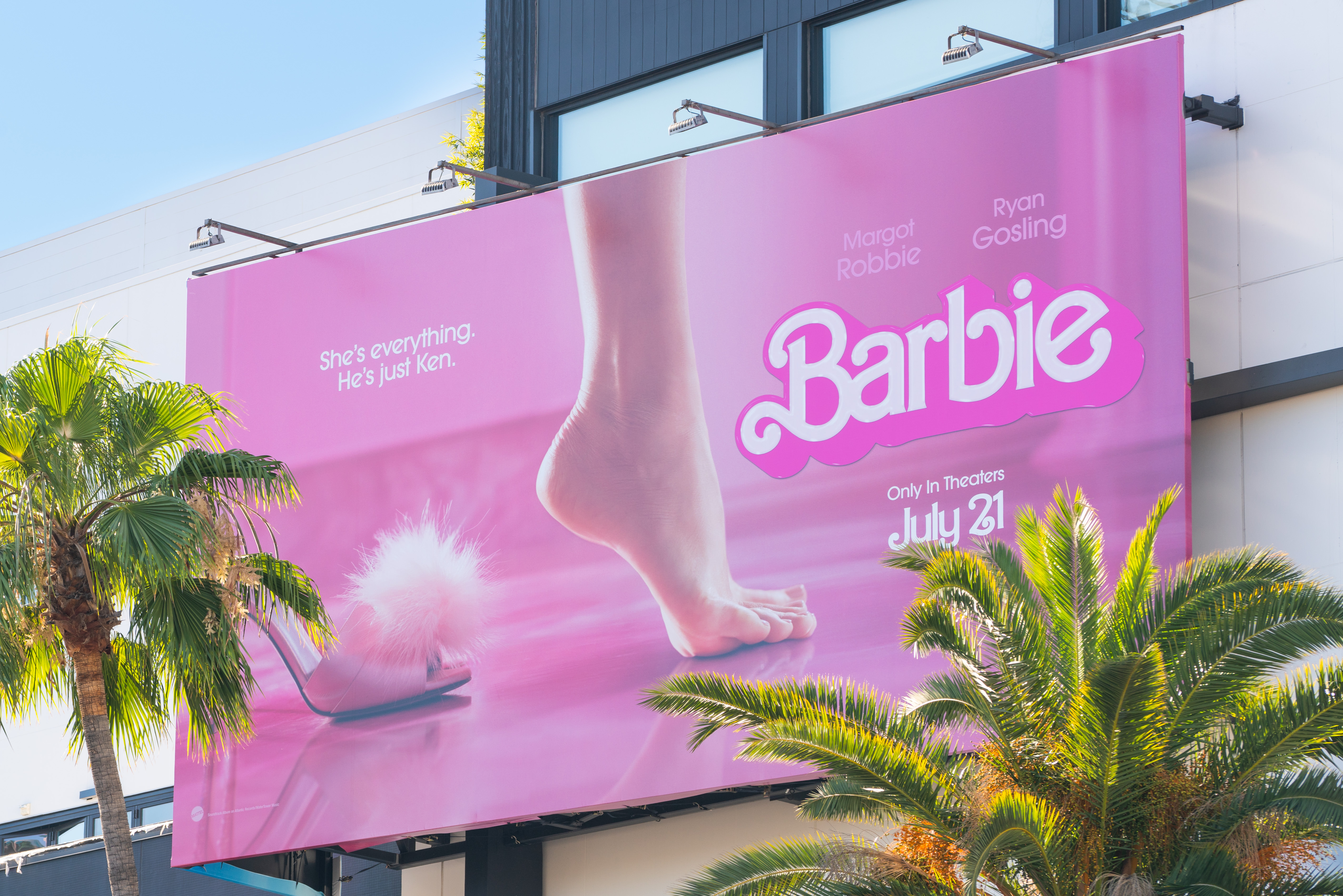
Latin America is taking Barbie mania to an extreme, with everything from pink-colored tacos and pastries, commercial planes bearing the Barbie logo, political ads and even Barbie-themed protests.
But it’s not all high heels and pom-poms: Barbie mania in the region has taken on a darker, macabre tone.
In Peru, anti-government demonstrators this week dressed up two women in pink and put them in giant Barbie boxes in the main square of Lima, the capital, to protest current President Dina Boluarte, under whose administration police have often clashed with protesters.
One actress, whose box was labeled “Barbie Dictator,” held a pink gun. The doll, according to the box legend, “includes tear gas and dum-dum bullets.” Another protester’s box was labeled “Genocidal Barbie.”
We've got the news you need to know to start your day. Sign up for the First & 4Most morning newsletter — delivered to your inbox daily. >Sign up here.

Meanwhile, stores, street vendors and restaurants throughout Latin America are offering up all sorts of Barbie-themed goodies.
In Mexico, there are Barbie tortillas (the corn dough is colored pink with beet juice, with some imprinted with an edible-dye pony-tailed Barbie silhouette); Barbie pastries and Barbie tacos (marinated pork meat served in pink tortillas and accompanied by a strawberry milkshake).
An entire Barbie-themed restaurant opened this week in Guayaquil, Ecuador; it is — of course — built to resemble Barbie’s house.
Volaris, a Mexican airline, has painted one of its jets with a Barbie logo and, according to a promotional video, the plane will be piloted by Barbie, not Ken.
The pink craze in the region is such that Barbie mania has now spread into politics.
In Guatemala, presidential candidate Sandra Torres shared a musical TikTok video pitching her as a Barbie who “wants prosperity for all.”
Mexican street sellers are peddling a Barbie doll modeled on presidential hopeful Claudia Sheinbaum, a real-life scientist-turned-politician whose own (real) ponytail has become her branding trademark.
The office of Colombian President Gustavo Petro recently raised hackles with a Barbie-theme video — including clips from the film’s trailer — to promote an independence day tour of the country. His office quickly removed the poorly made video.
Beyond the pony tails and fun food, there is a darker undercurrent.
In Mexico, a Barbie homage doll sparked controversy when a sister of one of Mexico’s 111,000 missing people began sewing Barbie outfits to costume the doll as a “Searching Mother” — a member of a group of volunteers who fan out across Mexico’s dusty plains to search for gravesites that might contain their children’s remains. Most of the missing appear to have been abducted — and killed — by drug cartels or kidnapping gangs.
This Barbie is clad in a wide-brimmed hat and a sun hood, wears a T-shirt bearing the photo of a missing man and camouflage pants and comes equipped with a shovel. Her creator, volunteer searcher Delia Quiroa, hopes to publicize the plight of mothers who have to carry out the searches and investigations police won’t do, and at the same time raise money to continue searching.
One group of volunteer searchers in the western state of Jalisco — the state with the highest number of missing people — questioned whehter casting Barbie as the victim of a horrible crime is appropriate.
Barbie "has evolved into a representation of strong, independent women who can do what they want and chase their dreams," the volunteer search group Light of Hope wrote in a statement. ”Nobody who is searching for a missing child, spouse or a sibling is doing what they want to do, much less chasing a dream."
“It seems to us an abomination that girls see being a Searching Mother as something normal," the group added.
Quiroa, from the northern border state of Tamaulipas, said her creation is almost an anti-Barbie.
“Barbie is everything a person wants to be, but this is a Barbie who doesn't want to be,” she said. “She is what nobody wants to be. Nobody wants to be a searcher, nobody wants to be looking for a family member.”
Quiroa has been looking for her brother Roberto since he was kidnapped by drug cartel gunmen in March 2014. Despite carrying out its own searches and pressuring authorities to investigate, the family knows nothing about his whereabouts.
“I think of this as a doll more directed to women, to us, not for girls to play with,” Quiroa said.
Vanessa Munguía, widely regarded as Latin America’s leading Barbie collector — she numbers her collection in the thousands — says Barbie is particularly popular in Latin America because, until a couple of decades ago, most girls' toys here depicted maternal, home-maker roles.
“Barbie was the only toy I found that told me that there were a million other possibilities. I could be an astronaut, I could be a teacher,” said Munguía, who became lawyer.
Asked about depicting Barbie as a “Searching Mother” or any of the other incarnations of the doll, Munguía says she finds it a very valid expression.
“I think that’s exactly what what we like in Barbie, that we can make her out to be whatever we need her to be at that moment,” she said.



